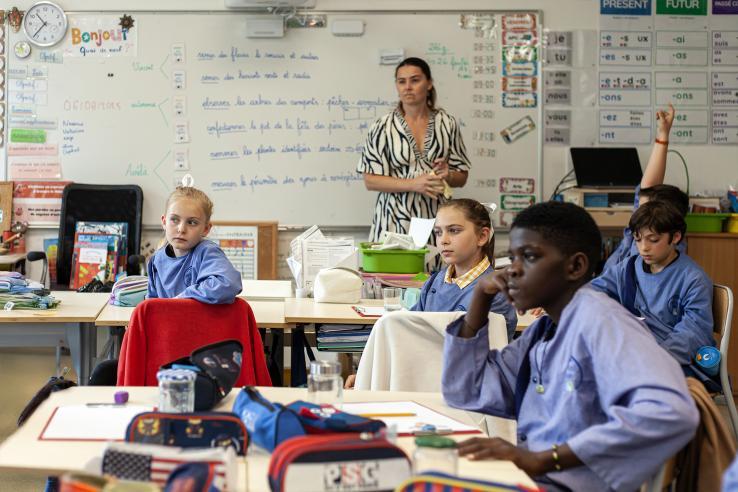August 2025 North America Newsletter

In the United States, large cuts to funding and infrastructure for both research and social programs are reducing the capacity of local, state, and federal government agencies to address pressing issues in constituents’ lives. Rather than turn away from research, we should look to it to illuminate how to efficiently and effectively design policies that help people thrive.
Drawing on examples from various countries and contexts, my colleagues across J-PAL’s worldwide offices developed the new Evidence Effect webpage and series to share lessons on how research has improved the lives and livelihoods of people experiencing poverty. The series highlights how research has shifted perspectives, influenced investments, and improved people's outcomes. Spotlighting the impact and role of evidence in developed-country contexts, I co-authored a blog in the series with Cillian Nolan, Executive Director at J-PAL Europe, examining the culture of evidence in North America and Europe.
In the blog post, we highlight successful evidence-to-scale demonstrations in North America on proven interventions such as sectoral employment and high-impact tutoring, among others. While there is still much to learn, we are encouraged by the continued collaboration of state and local governments, researchers, and nonprofit organizations that are prioritizing evidence-based policymaking. I encourage you to read the post, explore the full series, and join us in using research insights to improve programs, policies, and lives.
Sincerely,
Laura Feeney
Co-Executive Director, J-PAL North America
The Evidence Effect: Evidence for more effective social policy in Europe and North America
Over the past several decades, the world has made important gains in reducing poverty and expanding opportunities for people and families to thrive. Now, with fewer resources, the stakes are higher—but so is the potential for impact if we focus on solutions that are both effective and cost-effective. A new Evidence Effect page and accompanying blog series share what we have learned about improving the lives and livelihoods of people who are experiencing poverty. In the most recent blog post, Laura Feeney (Co-Executive Director, J-PAL North America) and Cillian Nolan (Executive Director, J-PAL Europe) discuss the policy landscapes in North America and Europe and highlight the critical role that evidence and evaluation has played, and should continue to play, in poverty alleviation. Read the blog »
J-PAL North America launches new Initiative for Effective US Crime Policy
Crime and public safety are among the most pressing concerns for communities across the United States. This summer, J-PAL North America launched the Initiative for Effective US Crime Policy (IECP) to identify and scale solutions that move the needle. To kick-start this critical work, IECP convened over seventy researchers, policymakers, and practitioners in June to identify research priorities and spark collaboration. Read more about this event and our new initiative »
J-PAL North America hosts annual Research Staff Training in Massachusetts
Earlier this month, J-PAL North America welcomed thirty research staff from across the country and around the world to participate in our annual Research Staff Training in Massachusetts. The three-day intensive course, designed for staff working on randomized controlled trials, helped participants develop practical skills, refine technical expertise, and connect with peers in the field. Read more about the training and get in touch with [email protected] if you’re interested in learning about other research training opportunities.
Featured Evaluation Summary
The impact of intensive case management to overcome barriers to self-sufficiency in New York
Programs designed to support adults experiencing poverty often yield temporary solutions, but evidence suggests that Comprehensive Case Management (CCM) programs may help individuals move toward economic self-sufficiency by addressing multiple challenges at once. Researchers conducted a randomized evaluation of Bridges to Success, a CCM program in the City of Rochester. In this program, mentors were paired with participants to support them in establishing short- and long-term goals and developing action plans tailored to their needs. One year after enrollment, participants randomized into the program had higher employment rates and were more likely to report progress toward achieving their personal goals. Read more »
Featured Research Resource
Formalizing research partnerships and establishing roles and expectations
Once a research team and an implementing partner have been identified for a randomized evaluation, the work of establishing and building the relationship begins. This process involves exploring questions around the project’s goals and activities to create working agreements between the implementer and research team. This J-PAL research resource offers practical guidance on establishing and building a strong working relationship with an implementing partner at the beginning of a randomized evaluation. Topics include questions to consider when developing a project scope, timeline, communications strategy, and formal agreements between researchers and implementing partners.
Media Mentions
Education policy and climate change
The Education Gadfly Show
More Money Was Supposed to Help Poor Kids. So Why Didn’t It?
The New York Times